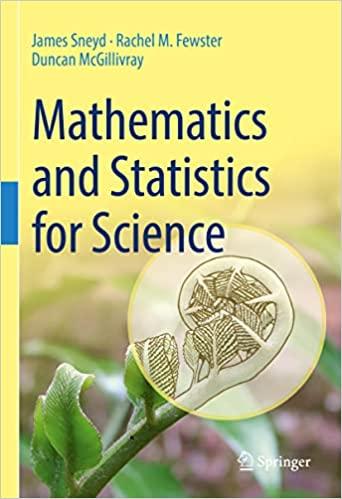Can you catch a liar? Do you think a machine can? Various liedetecting technologies are used by
Question:
Can you catch a liar? Do you think a machine can? Various liedetecting technologies are used by law enforcement agencies around the world. Here we look at a study (Hopkins et al, 2005)
of voice stress analysis: a system that is claimed to distinguish liars from truth-tellers based on indicators of stress in a person’s voice.
The study gives results of a voice-stress lie-detector from 516 analyses of police interviews in the US. These interviews were selected for the study because later evidence came to light that confirmed whether the suspect was lying or truthful during each of the 516 analyses. The suspect is said to have "passed" the lie-detector test if they were classified as truthful, and "failed"
if they were classified as lying. Here are the results.
The sample space is Ω = {all 516 interview analyses}. Define the events L and T that the suspect in the interview was respectively lying and truthful, and events P and F that the suspect respectively passed and failed the lie-detector test.
a. Each of the four probabilities 198/516, 73/516, 118/516, and 127/516, is the probability of an event that links two of the events L,T, F, and P. Write down the four probability statements. Give probabilities to two decimal places.
Hint: the first statement is of the form P(. . .) = 0.38.
b. In this study, what is the probability that a suspect was lying, P(L)? What is the probability that a suspect was truthful?
c. You should have found P(L) = 0.53: this is the probability a suspect was lying in this study. Can we use this to deduce that 53% of suspects lie to the police in general?
d. Let C be the event that the lie-detector test gave the correct answer in this study. Write down an expression for C in terms of the events L, T, P, and F.
e. Find P(C). Does this result give you confidence that the lie-detector test can be used as evidence in court?
f. Considering again P(C), can you assume that the value you calculated is applicable to the sample space of real police interviews? Regardless of whether you answer yes or no, is it nonetheless reasonable for you to use P(C) from this study to develop an opinion on the reliability of the lie-detector test?
g. What is the probability the test gives the correct result out of the liars only? What is it out of the truth-tellers only?
These are examples of conditional probability: see Chapter 30.
h. If you were innocent, and the police invited you to take this lie-detector test to prove your innocence, would you agree to take the test? Which of the probabilities you calculated above is the best one to base your decision on?
Step by Step Answer:

Mathematics And Statistics For Science
ISBN: 9783031053177
1st Edition
Authors: James Sneyd, Rachel M. Fewster, Duncan McGillivray






